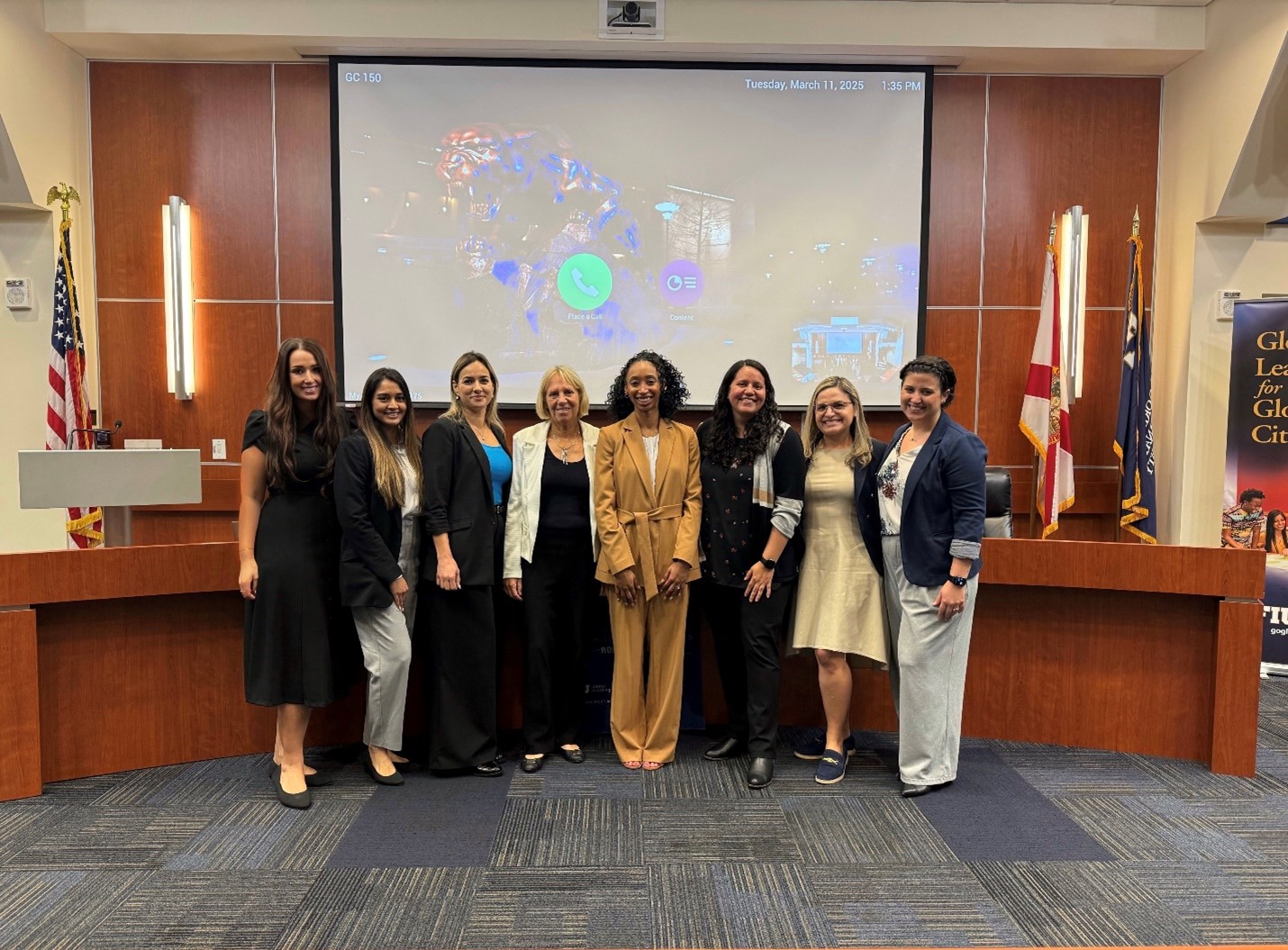On Tuesday, March 11, 2025, students gathered for the annual New York Times Speaker Series, an opportunity for students, faculty, and staff to engage in discussions about specific key global issues with a New York Times journalist. This year, Jordyn Holman, a Business Reporter from the Times, was invited to connect with the FIU community.
In her keynote presentation, “All Consuming: Retails, Technology, and the Attention Economy,” Holman discussed shopping, how companies grab our attention in a more globalized and connected market, and what responsibilities company leaders have toward their customers. She also shared insights from her own previous work experience in business journalism, where she contributed to to news outlets such as Bloomberg News.
The Global Learning team had the opportunity to follow up with Jordyn to reflect on her keynote presentation and interactions with FIU students.
During our New York Times speaker series, you had the chance to interact with Florida International University students directly. Does the experience of interacting with students face-to-face differ from the work that you normally do or is it similar? In what ways?
I loved the opportunity to interact with the students on campus. Talking to them and getting to know their interests, biggest concerns and what makes them tick is very similar to the work I do as a journalist on a daily basis. One of the most rewarding parts of my job is having the chance to get to know people more, through deep conversation that helps reveal their worldview.
But I must admit, it’s not often that I have the opportunity to talk to college students, right on the edge of starting their careers and entering the “real world.” It was refreshing to hear their perspectives on all of the day’s biggest issues: the economy, affordable housing, climate change. It was refreshing to know that students are so engaged in these discussions among one another.
You’ve covered the rise of the attention economy and how brands target consumer attention. What are some important takeaways for college students regarding these topics?
We all contribute to the attention economy with our money and our clicks and scrolls. Companies often say that they are offering customers what they say they want. So one of the biggest takeaways is that you, as a consumer, have power. You flex that power by your shopping habits and where you put your money.
As technology continues to evolve and e-commerce becomes more dominant in our society, it will become easier for companies to track and identify those shopping habits. Just think about how when you watch one video on TikTok your whole algorithm shifts to keep providing you similar content.
There are certain tools that can limit the ways tech platforms are allowed to track you but be mindful that the incentive for for-profit companies will always be having you spend more with their brand. And they do that by keeping your attention in entertaining and mind-bending ways.
As a business journalist, are there any global changes or global trends you think students should be aware of overall?
The global economy is more integrated than ever before. Just take a look at how the promise of tariffs is sending ripples across the world. As a business journalist, I need to not only be aware of how U.S. policy will impact Americans but how consumers across the world are being impacted. The U.S. economy, and specifically the U.S. dollar, impacts people’s decisions to travel to America for vacation. Tariffs impact companies’ ability to import goods and the cost at which they’ll sell them to us. Immigration policies influence the job market and employment levels. Basically every global trend has a business and money angle. For students it’s important to “follow the money” as an old adage in business journalism goes.
What qualities or experiences should college students aim for if they have plans to pursue journalism specifically?
One big quality of a journalist is fearlessness and tenacity. You have to be comfortable with going out there and talking to people and getting information.
Try to get as much writing experience as you can! Journalism is a craft so it’s all about getting out there and doing it. Join the school newspaper, try to write stories for local or national outlets about campus or the issues that you and your friends are talking about.
Finally, it’s very important to network in this industry. If you’re not already on LinkedIn, join the site and follow the journalists doing the work that you want to do one day. Don’t be afraid to reach out to them and ask to chat. Journalists love talking about themselves and their work!
The New York Times Speaker Series occurs annually every spring semester at FIU. Please be sure to follow @goglobalfiu on Instagram to be kept up to date on the next speaker series event. For access to previous events and speakers, visit our website here.
